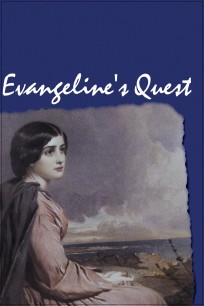
Evangeline's Quest 1996
Distributed by First Run/Icarus Films, 32 Court St., 21st Floor, Brooklyn, NY 11201; 800-876-1710
Produced by the National Film Board of Canada
A film by Ginette Pellerin
VHS, color, 54 min.
Jr. High - Adult
Literature
Date Entered: 11/09/2018
Reviewed by Brad Eden, Ph.D., Head, Web and Digitization Services, University Libraries, University of Nevada, Las VegasEvangeline's Quest is a film about the genesis, importance, and history of the poem by Henry Wadsworth Longfellow that was published in 1847. The story is about a young Acadian woman who was separated from her fiance Gabriel during the Acadian Expulsion from Nova Scotia, Canada in 1755. She searched all over America for him, only to find him eventually on his deathbed. The poem has been translated into 130 languages and has over 300 editions.
The film uses the fictitious Evangeline's voice as a kind of narrator/questioner to the various authorities/experts on the poem throughout the film. She asks how she came about in Longfellow's mind (Nathaniel Hawthorne suggested the folklore to him), why people came to idolize her, etc. There are lots of nature scenes throughout of the Canadian and Louisiana countryside, two important geographic locations of Evangeline legends. The poem itself became a rallying cry around the world for Acadians. In the 1920's-30's, the town of Grand Pre in Nova Scotia became a major tourist attraction due to its Evangeline statue and its advertising campaign as the "Land of Evangeline." A huge bicentennial celebration of the poem and its heroine was celebrated in Grand Pre in 1955, and the poem essentially celebrates Acadian nationalism. In Louisiana, Evangeline has been transformed into a cult hero, celebrated by statues, town names, product names, and even an oak tree where she supposedly died. There were even attempts to canonize Evangeline, a fictitious person, in the Roman Catholic Church. Films and art work about Evangeline were also discussed. This film won a number of special jury prizes at various film festivals when it was released in 1996. Recommended for teachers covering this poem in English literature class, as it does a wonderful job of portraying the importance of the poem and its heroine to Acadian nationalism, and indeed to Canadian tourism. Also useful, perhaps in an English section on Longfellow himself. Both high school and college students reading the poem would benefit from viewing this film.